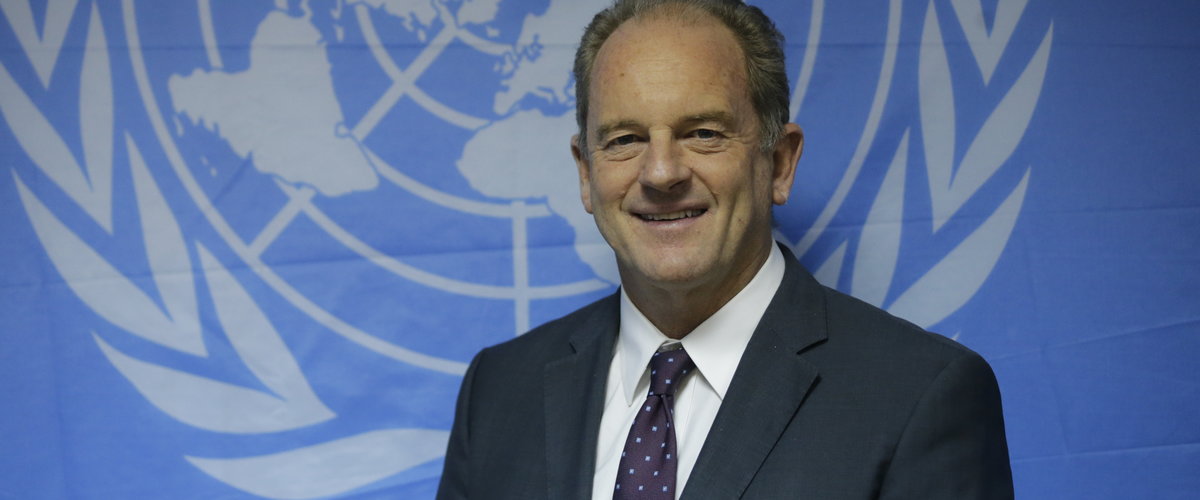UNMISS chief urges global pressure to end South Sudan conflict

March 17, 2017 (JUBA) – The head of the UN Mission in South Sudan (UNMISS) has urged the international community to speak with one voice, stressing that doing so would help put a bearing pressure on the rival South Sudanese leaders to create the political will for the parties to cease hostilities and build peace.
“Standing together is the only way to move forward,” David Shearer, according to a statement his office extended to Sudan Tribune on Friday. He further added Shearer during a briefing to the African Union peace and Security Council (AUPSC) in Addis Ababa, Ethiopia, told the continental body that the situation in the country continues to deteriorate and generate profound human suffering in which local and ethnic divisions have been exploited for political ends.
The top UN official in the country was addressing an AUPSC meeting on South Sudan on Friday during which he said that “conflict is apparent across the country.”
‘In recent weeks there has been an escalation of fighting in Equatoria and Upper Nile regions. Both have led to significant and additional displacement of civilians,” he said
He added that new armed groups and actors are emerging leaving South Sudan deeply divided, pointing out that a “circuit breaker is desperately needed.”
Shearer reiterated that access denials to both humanitarian organisations and the UN mission, UNMISS, even in the face of such enormous suffering are continuing.
He described as “alarming” the lack of any response from South Sudanese leaders of all sides to the plight of their people.
In an opinion article published in the News Week Friday, UNMISS chief urged the international community to provide the needed humanitarian support for the famine-hit civilians in South Sudan.
“This tragedy needs and deserves the attention of the world. Now, more than ever, it needs foreign aid. But more importantly, it needs the leaders of the world’s youngest nation, who fought for decades to win independence, to understand that their cherished sovereignty comes with responsibility—to protect and provide for their citizens, not simply expect those needs to be met from outside,” he said.
(ST)
